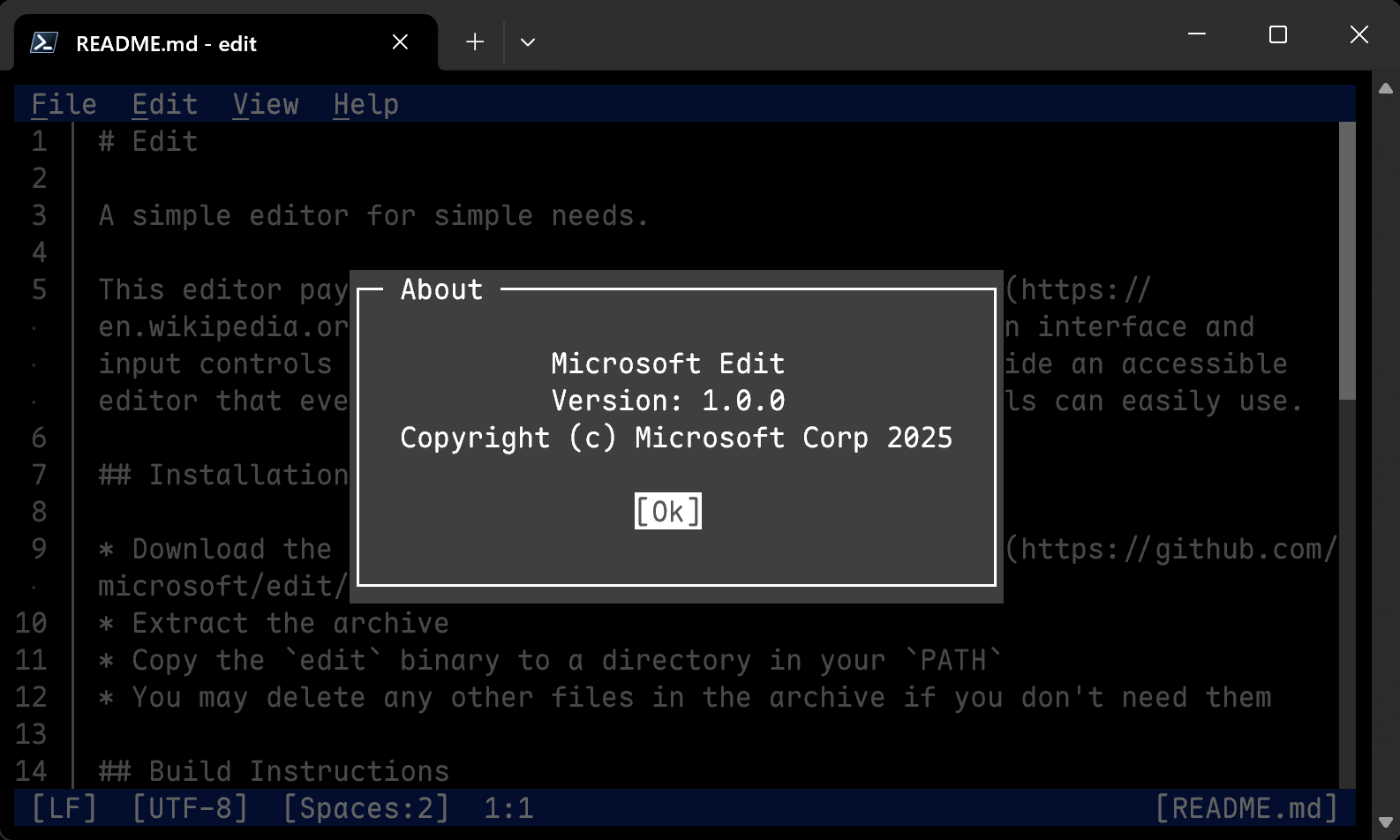Edit Microsoft Corporation
winget install --id=Microsoft.Edit -e A simple editor for simple needs. This editor pays homage to the classic MS-DOS Editor, but with a modern interface and input controls similar to VS Code. The goal is to provide an accessible editor that even users largely unfamiliar with terminals can easily use.
Edit is a simple text editor designed for straightforward and efficient content creation. Built with accessibility in mind, it combines the familiarity of classic DOS editors with a modern interface inspired by VS Code.
Key Features:
- Minimalistic design focused on ease of use
- Terminal-like interface that feels intuitive to new users
- Syntax highlighting for clear code readability
- Support for multiple programming languages
- Modern keyboard controls similar to popular IDEs
- Cross-platform compatibility
Ideal for developers, writers, and anyone in need of a no-frills text editor. Edit provides the tools necessary for quick editing without overwhelming users with unnecessary features or complexity. It can be easily installed via winget on Windows.
README
 Edit
Edit
A simple editor for simple needs.
This editor pays homage to the classic MS-DOS Editor, but with a modern interface and input controls similar to VS Code. The goal is to provide an accessible editor that even users largely unfamiliar with terminals can easily use.

Installation
You can also download binaries from our Releases page.
Windows
You can install the latest version with WinGet:
winget install Microsoft.Edit
Notes to Package Maintainers
The canonical executable name is "edit" and the alternative name is "msedit".
We're aware of the potential conflict of "edit" with existing commands and as such recommend naming packages and executables "msedit". Names such as "ms-edit" should be avoided. Assigning an "edit" alias is recommended if possible.
Build Instructions
- Install Rust
- Install the nightly toolchain:
rustup install nightly- Alternatively, set the environment variable
RUSTC_BOOTSTRAP=1
- Alternatively, set the environment variable
- Clone the repository
- For a release build, run:
cargo build --config .cargo/release.toml --release